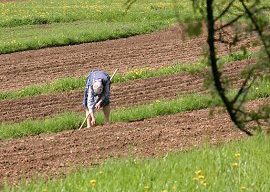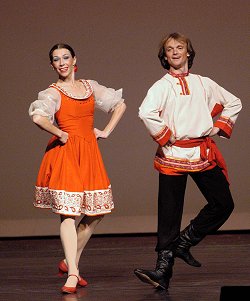 | Blogger News | Contact | Buy Book |
|
TRUE WWII STORIES
AnnushkaTrue World War II Story by Gisela Cooper Very often I watch Ray Mears Survival program on TV. I had a surprise to find one of his presentations referring to the story "Annushka" I had written a few years ago. Read more.. Here is the story The vegetable garden was tended by babushka. Behind the barn an orchard with many kinds of fruits grew, and the fruit was picked with the help of the children ready for sale. On the left side, as far as the eye could see, farmland with a sea of corn on one part and on another part, sunflowers grew in abundance. All villagers worked in those fields. The children went to school while their parents worked the land. Each babushka acted as a nanny when babies were in the family and cooked the meals for the family, so that the workers came home to a hearty meal after a hard day in the fields. Their staple food was mainly vegetable- and meat stews. ### Maria and Vasily only had one child, Annushka. She had blond hair braided into plaits. She could persuade her family to grant her many wishes, looking at them with her big blue eyes. She was an obedient child and pleased her family with her kindness and thoughtfulness. Soon she had to start school and made friends with the village children.As soon as Annushka came home from her lessons she had to make her way several times to carry some water from the pump in the yard to the house. This was her daily duty. But first she had greeted her little pet dog "Malo". He accompanied her where ever she went after school hours. After her meal and doing some home-work, she met her friend Nastja (Annastasia) who lived in the nearby village. Nastja had a twin brother Boris who came at times with his sister to play with Annushka. They jumped and tumbled over the haystacks or played hide and seek with other children, or chased birds away from the cornfield. When it was time to go home, Annushka took the goats from their grazing spot to the shed, but with difficulty, as they tried to munch everything on sight. ### Father Vasily made his rounds when his work had finished, feeding the animals, then cleaning the barn and putting fresh straw down for them. Before all went to bed, he made his round to see if the animals were secure and locked all the doors. They did not stay up too long, as another hard day was in front of them working in the field. Father and mother got up at five to milk the cows and goats, and at seven all the other members of the family got up to have their breakfast, mainly bread dipped in milk with or without sugar. On Sundays, both Maria and babushka prepared a huge lunch. In the summer and Autumn lots of fruits were on the table from the orchard.In late summer uncle Ivan took all the children berry- and mushroom picking in the forest. Uncle Ivan was great fun to be with. Often, before going to bed, he told fairy-tales and sometimes they were so sad, that even mother had to wipe her eyes. Sunday afternoon, father Vasily played the balalika and from the village everyone came to dance in the village square, the men and boys doing their acrobatic dancing. ### On special occasions people from other villages came dressed up in their traditional dress to dance and drink rather a lot of vodka. Some men brought their accordions along and they played in harmony with Vasily's balalika. Little Malo hopped joyfully around them.In the long winter months, Annushka, her friends and neighbours children went to take part in skiing competitions. Annushka won and was the new ski champion in her area. The forest was hilly so that they could practise their skills, but they could not venture too far into the forest. In the icy conditions, wolf packs came close to the villages to forage for food. ### Annushka was growing up and studied hard to become a teacher. During this period a hard time befell them all. In the summer months it had not stopped raining and all the crops in the field were ruined. Nothing could be harvested. There was just enough to keep some animals alive. Even in their vegetable garden not much could be salvaged. The future looked very bleak. Vasily had to sell two cows and a horse to carry them through the harsh and long winter months. Everyone in Krasiva clubbed together to buy the seed for the next crop.The following spring brought new hope for them all, but until the harvest was reaped, belts had to be pulled tight. It turned out to be a wonderful warm and sunny summer. Corn and sunflowers grew again and at harvest time, everyone was very happy and Vasily could keep again three cows and two horses. ### As time went by, Annushka was able to study in Kiev, and after finishing her exams, on her return, she could now teach in a brand-new school the villagers had built in her absence. She had stayed in touch with all her friends, and after a while she fell in love with Boris and they were married. From far and wide people were invited to the traditional Russian wedding. Lots of vodka was consumed between dancing and singing. (Kalinka, Kalinka)!Annushka and Boris lived with her parents for a year until they had finished building their own house. Also here the villagers gave a helping hand. The wood was freely available from the large forest. They lived happily until one after another Annushka's babushka and parents died. It was so sad, because they had loved each other so much. Annushka and Boris had three children, a girl and two boys who helped to overcome the sad losses. ### They had a carefree life until Russia was attacked by the enemy, and rumours arrived, that enemy troops were soon coming to their village. Other villages and whole towns were destroyed and people had been taken away or had been killed. Refugees had brought this bad news too.Everyone started packing feverishly, taking everything they could, placing it in their farm carts, tying the animals to those wagons. They took their tools too, because they had to build shelters for their temporary existence deep in the forest, and to make sure to safe-guard from the wintry conditions. The men were also going hunting and the women created a garden in the forest to grow vegetables. For four years they had to stay and had to endure great hardships, but luckily, looking ahead, bringing plenty supplies, no-one died. All the same they were anxious to return to their village and hoped perhaps not much damage had been done. ### Some-one was sent to the outskirts of the village and had a shock, nothing was left of their village. Where houses and barns stood, and also the school, were razed to the ground, being burnt. But there was one relief, they could return to their village. In the former village a few refugees had settled, with primitive shelters. The villager, who had returned to the village and met the refugees, was told that the war was over and it was safe to return. On returning to the forest he could give everyone the good news, but he had to tell them the sad news too, that the village had disappeared. Now they had to start from scratch, rebuilding their homes and attending the fields.Annushka was concerned how to further educate the children. She had still school books to teach the children how to read and write, the children wrote on slate slabs. Her next concern was a new school. She needed a warm place to be able to teach the children. Again the villagers helped, but this time the task took much longer, as all had to build their own homes and tend the fields too. They realised that they had a future again. Annushka's and Boris's children grew up and played as their parents did, jumping over haystacks or chasing birds from the fields. Gradually normality returned and the people of Krasiva could play their instruments again, dance, sing and drink vodka. |
| ©2001-2016 Content by Gisela Cooper | Web Site by LucarInfo.com | Sitemap | Privacy |
